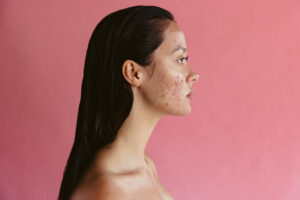
Acne is a common skin condition that affects millions of people worldwide. It can lead to various types of acne, and the extent can range from mild to severe. Although acne is commonly associated with teenagers, adults of any age can develop acne, and it is a common issue for patients seeking weight loss solutions. While the causes of acne are still not fully understood, research has identified many factors that contribute to the onset of acne. In this article, we explore the different types of acne and their causes.
Types of Acne
There are a variety of types of acne, and understanding the differences between them can be critical when treating the condition. Some common types of acne include:
Whiteheads: These occur when the follicle is completely blocked, creating white or yellow dots on the skin.
Blackheads: These are similar to whiteheads, but the blocked follicle is open, resulting in a dark or black appearance to the skin.
Papules: These are small, raised bumps on the skin that can be painful to the touch.
Pustules: These are small, pus-filled bumps on the skin.
Cysts: These are larger, painful bumps underneath the skin that can be filled with pus.
Causes of Acne
Research has identified several factors that contribute to the development of acne, including:
Hormones: Hormonal changes can play a significant role in the development of acne, particularly during puberty when hormone levels fluctuate. This can lead to an increase in sebum production in the skin.
Genetics: There is evidence that acne may be hereditary, and those with a family history of acne may be more likely to develop the condition.
Bacteria: A certain type of bacteria known as Propionibacterium acnes lives on the skin. While harmless in small amounts, an overgrowth can lead to the development of acne.
Diet: Some studies suggest that certain foods, such as dairy and foods high in sugar, can contribute to the development of acne.
Stress: While stress alone does not cause acne, it can make the condition worse in those who already have acne.
Treating Acne
Treatment for acne will depend on the severity of the condition. Some common treatments include over-the-counter topical treatments such as benzoyl peroxide, salicylic acid, or retinoids. For more severe cases, prescription medications such as antibiotics or isotretinoin may be necessary. Maintaining a healthy diet and lifestyle, practicing good skincare habits, and avoiding harsh skincare products may also help prevent acne.
Prevention
Preventing acne relies on lifestyle and skincare habits such as:
Washing your face twice a day with a gentle cleanser
Avoiding harsh skincare products and abrasive scrubs
Keeping your hair and hands away from your face
Changing your pillowcases frequently
Eating a healthy and balanced diet
Drinking plenty of water to stay hydrated
Conclusion:
Acne can be an annoying and sometimes painful condition that impacts people of all ages. By understanding the different types of acne and their causes, you can develop an effective treatment plan to combat the condition. While there may not be a cure for acne, there are steps you can take to prevent it from developing and minimize its effects. With proper skincare, a healthy lifestyle, and medical intervention when necessary, you can successfully manage acne and enjoy healthy, clear skin. For more articles, visit www.NewLeafNewU.com.
